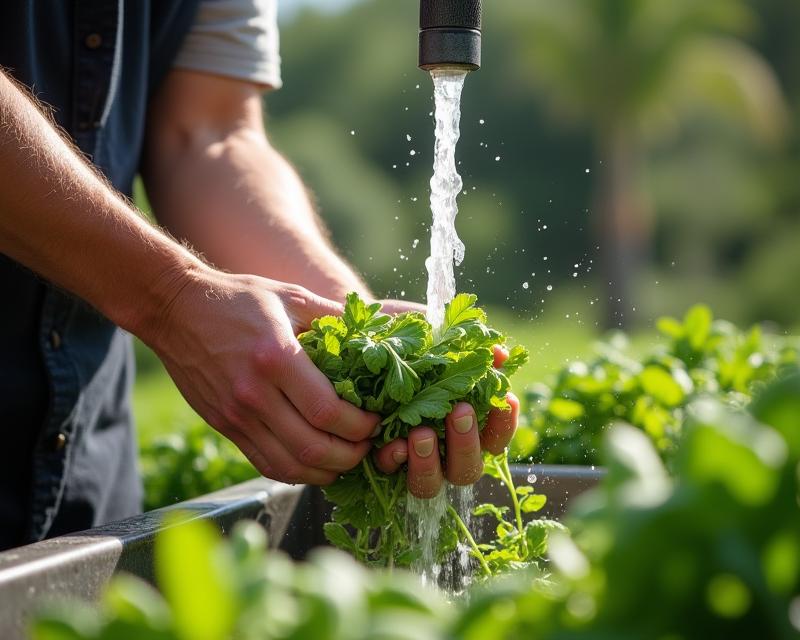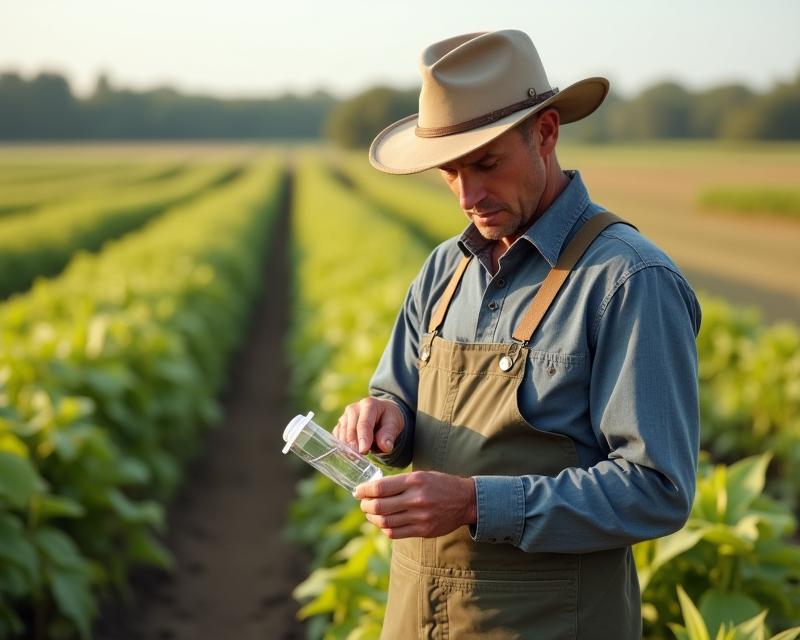Fresh Veggies: Keeping it Safe!
Publish in Agriculture el 04/07/2025 00:59
Fresh Veggies: Keeping it Safe!
Hi everyone! As farmers, gardeners, and ranchers, we pour our hearts into growing the food that nourishes our communities. But with that comes a big responsibility: ensuring our produce is safe to eat. Food safety isn't just a buzzword; it's crucial for protecting our customers and building trust in our industry. Let's dive into some simple steps to prevent contamination and keep those fresh vegetables healthy!

From Field to Table: Preventing Contamination
The journey of your vegetables begins in the field, and potential contamination can happen at any point. One of the biggest culprits is soil and water. Always ensure your irrigation water is clean and free of pollutants. Consider using crop rotation to minimize soilborne diseases and pests. And when harvesting, be mindful of avoiding contact with soil or decaying matter. Also, proper storage is key! Cool temperatures and good air circulation slow down the growth of bacteria and fungi.
Hygiene is Your Best Friend
Good hygiene practices are absolutely essential. This starts with washing your hands – frequently! Wash before, during, and after handling any produce. Use soap and warm water for at least 20 seconds. Also, make sure all tools and equipment used for harvesting and processing vegetables are clean. Regularly sanitize surfaces with an approved disinfectant. Consider wearing gloves, especially if you have any cuts or abrasions on your hands. Remember, even seemingly small things can contribute to contamination.
Cleaning & Preparation: The Final Steps
Before selling or consuming your vegetables, a thorough cleaning is vital. Rinse produce thoroughly under running water. For firm vegetables like carrots and potatoes, use a vegetable brush to scrub away any dirt. Leafy greens benefit from a gentle rinse and a spin in a salad spinner to remove excess water. Avoid soaking vegetables for extended periods, as this can promote bacterial growth. Properly store cleaned vegetables in the refrigerator to maintain freshness and safety. By following these simple guidelines, you can significantly reduce the risk of foodborne illness and ensure your customers enjoy safe, delicious produce.
Food safety is an ongoing process, and staying informed about best practices is key. Check with your local agricultural extension office for the latest guidelines and regulations. Let's all work together to keep our food supply safe and healthy!





